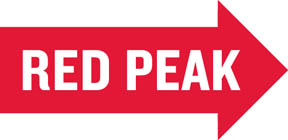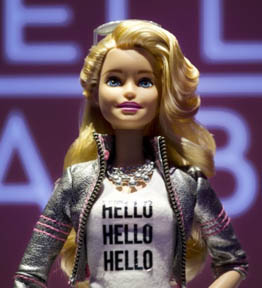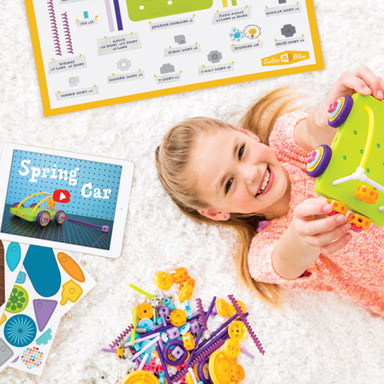by Catherine Mevs, strategy director, Red Peak Branding
 With more and more Millennials stepping into parenthood, big name toymakers are trying to guess at the expectations of a new generation of parents. However, from Mattel’s introduction of its Siri-inspired Hello Barbie to Hasbro’s more compact preschool toys, thus far their efforts are either misguided or not going far enough.
With more and more Millennials stepping into parenthood, big name toymakers are trying to guess at the expectations of a new generation of parents. However, from Mattel’s introduction of its Siri-inspired Hello Barbie to Hasbro’s more compact preschool toys, thus far their efforts are either misguided or not going far enough.
Let’s start with Hello Barbie, a talking doll launching this fall that records and analyzes what children say to it in order to optimize its responses. While concerns have been raised by everyone from Campaign for a Commercial-Free Childhood to the American Civil Liberties Union, there’s reason to think the doll doesn’t align with Millennials’ developing approaches to parenting.
Research has shown that in parenthood, Millennials become increasingly concerned with privacy, and 29 percent say they actually use the Internet less due to these concerns. A separate study also shows that 86 percent of Millennial parents have made it a goal for themselves to avoid the “helicopter parenting” style that has gotten such a bad name over the years.

Hello Barbie, then, hits both the nerve of Internet privacy fears as well as offers an entry point into the exact parenting style Millennials are aiming to avoid. With the access it offers parents to the recorded conversations between children and their toy, it is a helicopter parent’s favorite spy.
Then there’s Hasbro, which is seeing more success lately than Mattel due to its movie franchise toys. Hasbro showed sleeker, more compact designs for preschool-aged kids at North American International Toy Fair in New York City this past February.
“In the old days, you’d have big plastic things all around your living room,” said John Frascotti, the president of Hasbro Brands. “But today’s young Millennial moms are living in cities and not big spaces. They want the ability to easily pack up stuff and not have it littering the living room.”
Sleeker designs look great, but they’re not enough. First, there’s evidence that Millennials aren’t quite as city-prone as we’ve been led to believe. Second, and more importantly, this type of change looks too minor when compared to the ways toy brands outside the mainstream are seeing success and getting buzz. They’re thinking about the bigger picture of how Millennials want their children to play. Here are two examples of how they’re doing it:
1. Reflecting the diverse world Millennials’ children live in.
The first year that there were more minority births than white births in the U.S. was 2011. As if to reflect some alignment with this latest generation, at this year’s North American International Toy Fair, Mattel showed not just Hello Barbie, but new dolls with much more diverse skin tones and features.
Some entrepreneurs, though, are striving to take toys even further in terms of depicting diversity in families. Ez Karpf and his wife started MyFamilyBuilders to address the fact that most toys encourage an outdated, standardized view of families. Their 48-piece building block set lets children literally build the men, women, and children of all races and styles that comprise a family.
To fund the toys, MyFamilyBuilders has launched a Kickstarter campaign.
“Kids construct the idea of families at a young age,” says Karpf. “We thought that if we could teach kids to celebrate love and the values shared by all families regardless of color, creed sexual orientation or culture, maybe there wouldn’t be so much evidence of hatred on the news.”
The message here is it’s not just the skin tones of dolls that need updating, but the entire approach to how Millennial-led families are depicted.
2. Helping Millennial parents teach the same skills they value.
 Research by the Center for the Digital Future shows that less than half of Millennial parents feel their children’s schools are adequately preparing them to use new technologies. In line with this finding and the cultural focus on science and technology, independent toy brands such as GoldieBlox and littleBits have seen success by introducing kids to technology and engineering through play.
Research by the Center for the Digital Future shows that less than half of Millennial parents feel their children’s schools are adequately preparing them to use new technologies. In line with this finding and the cultural focus on science and technology, independent toy brands such as GoldieBlox and littleBits have seen success by introducing kids to technology and engineering through play.
Like Hello Barbie, littleBits puts advanced technology to work in a new format. More than just tech for tech’s sake, littleBits makes a point of designing products that help parents and kids work and learn together to create electronics.
Amazon, meanwhile, recently unveiled a new STEM toys section with a call out to parents to “educate and excite with Science, Technology, Engineering and Math toys.” For toy companies such as Hasbro and Mattel, being the stars of a section like that would be a real win with Millennial parents focused on seeing their kids master new technologies.
With Millennials accounting for 80 percent of the 4 million annual U.S. births, getting a handle on not just on Millennials’ surface characteristics, but their deeper values when it comes to how they want to parent, will be the key to success for toymakers.
Catherine Mevs is a strategy director at the New York City-based Red Peak Branding.

